Jewish couples urged to get tested for Tay-Sachs
 JScreen (jscreen.org), a not-for-profit at home education and genetic carrier screening program, today highlighted September’s Tay-Sachs Awareness Month, encouraging people to get tested for genetic diseases so they can make informed decisions about family planning. JScreen’s expanded screening panel tests for more than 200 diseases, a significant development from a generation ago.
JScreen (jscreen.org), a not-for-profit at home education and genetic carrier screening program, today highlighted September’s Tay-Sachs Awareness Month, encouraging people to get tested for genetic diseases so they can make informed decisions about family planning. JScreen’s expanded screening panel tests for more than 200 diseases, a significant development from a generation ago.
“If a couple knows their carrier status prior to pregnancy, they have ample time to seek genetic counseling, gain information about the disease(s) that they carry, and make family planning decisions that will best suit them,” said Shari Ungerleider, whose son, Evan, tragically died of Tay-Sachs disease.
Within months of his seemingly healthy birth in 1994, Shari and Jeff Ungerleider became concerned as they realized that Evan was not developing at the same pace as other children his age. By the time he was 10 months old, it was clear there was a significant problem. Evan’s condition quickly progressed, and he was soon unable to move on his own, suffered multiple seizures daily, and had respiratory difficulty which required the Ungerleiders to provide chest physical therapy and to suction him regularly. He eventually became blind and deaf. They had a feeding tube surgically inserted so that Evan would be able to stay properly nourished and medicated. He had to undergo several hours a week of physical and occupational therapy so that his muscles would not atrophy. Evan lost his battle with Tay-Sachs when he was almost 4 ½ years old.
One in 30 Ashkenazi Jews are carriers of Tay-Sachs, and one in 300 people in the general population are carriers. While there is no cure for Tay-Sachs, genetic screening can determine who is a carrier and whether a couple is at risk for having a child with this or other diseases. For the small percentage of couples that are at risk, there are many options to help them have healthy children.
Since the 1970’s, the incidence of babies being born with Tay-Sachs has fallen by more than 90 percent among Jews because of genetic screening in the Jewish community.
Tay-Sachs disease is caused by absence of the enzyme hexosaminidase A (HexA), which causes a lipid to build up in cells and results in progressive neurological damage. According to the National Tay-Sachs and Allied Diseases Association (NTSAD), along with Ashkenazi Jews, French Canadians and Louisiana Cajuns are considered to be at high risk for carrying Tay-Sachs disease. When both parents are carriers, each child has a 25% of having the disease. The Senate voted unanimously in July of 2008 to name September National Tay-Sach’s Awareness Month in an effort to bring additional attention to this deadly disease.
“A simple, at-home spit test can help families avoid the heartbreak of this – and other – devastating genetic diseases, and provide essential information to help prospective parents make decisions about the future of their family,” said JScreen’s Director of National Outreach Hillary Kener. “If a couple is found to be at high risk, JScreen provides invaluable genetic counseling to help them navigate their options for the future.” — From JScreen
*
Shaparou family permitted to make Aliyah from Ethiopia
 The mother and siblings of Sintayehu Shaparou, the Ethiopian who competed in Israel’s April 2018 Chidon HaTanach contest, will arrive in Israel later this month. The family is being granted residency status after months of lobbying the government.
The mother and siblings of Sintayehu Shaparou, the Ethiopian who competed in Israel’s April 2018 Chidon HaTanach contest, will arrive in Israel later this month. The family is being granted residency status after months of lobbying the government.
“We are finally seeing progress,” said A.Y. Katsof, director of The Heart of Israel, who raised $10,000 for flights and early resettlement costs of the family in Kibbutz Sde Eliyahu in northern Israel.
The Shaparous are members of the Falash Mura community in Ethiopia. Sintayehu Shaparou’s father and half-siblings immigrated to Israel 17 years ago while Shaparou, his mother, and other siblings awaited approval for Aliyah in Ethiopia – though the approval never came.
Sintayehu Shaparou was granted residency by the Interior Ministry in April 2018 after it became public that Sintayehu was forced to deposit money with immigration and border control officials as a guarantee that he would leave the country following the Bible contest.
The Shaparous have never learned the reason for the rejection of their immigration application, according to Katsof, who stressed that the family’s situation is just one example of hundreds whose families have been separated and left in limbo.
The government decided in 2015 to bring the remaining members of the Falash Mura community to Israel. The government brought a first 1,300 in 2017 and has yet to approve a budget for any further immigration. Since the government would not pay for the Shaparou’s Aliyah, the Heart of Israel raised the money from private donors. — From Israel 365
*
How you can hear podcasts of the Jewish Council for Public Affairs
During the end of summer, tune-in to Seasons 1 and 2 of JCPA’s CRCast which are now available on on YouTube, and as audio on iTunes!
The CRCast is a bi-weekly webcast in which we tackle topics affecting the Jewish community and the Community Relations field. In each episode, JCPA President/CEO David Bernstein interviews a special guest expert or practitioner about the most pressing issues of the day. Click here to listen to past episodes and subscribe for new ones!
SEASON 2 (click title to watch):
 |
Jews of Color and the American Jewish Community Featuring Lacey Schwartz, Director of Outreach North America for Be’chol Lashon | 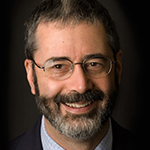 |
Evangelical Christianity and its Relationship to the Jewish Community Featuring David Neff, former editor in chief of Christianity Today . |
 |
The Chinese American Community Today Featuring Fred Teng, President of America China Public Affairs Institute. |  |
Overcoming Political Polarization: Dialogue Across Differences Featuring Rob Fersh, President and Founder of Convergence . |
 |
The Global Jewish Advocacy Agenda Featuring David Harris, CEO of AJC: Global Jewish Advocacy . |
 |
What’s at Stake with the Census? Literally Everything! Featuring Terri Ann Lowenthal . |
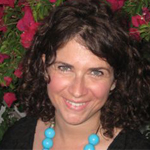 |
Encountering Palestinian Narratives Featuring Yona Shem-Tov, executive director of Encounter | 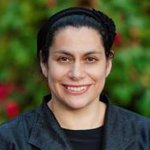 |
What’s in Our Children’s Textbooks (and What to Do About It)? Featuring Aliza Craimer Elias, Director of the Institute for Curriculum Services . |
 |
The Atmosphere on College Campuses: Michigan as a Case Study Featuring Tilly Shames, Executive Director of University of Michigan Hillel. | 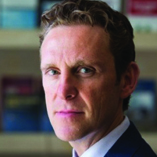 |
Ongoing Iranian Nuclear Threat Featuring Mark Dubowitz, CEO of the Foundation for Defense of Democracies (FDD) . |
 |
Understanding and Responding to the White Supremacist Threat Featuring Joseph Levin, co-founder of the Southern Poverty Law Center |
TUNE IN FOR SEASON 3
The CRCast is on summer hiatus, but will be back September 12!
SEPTEMBER 12 at 1:00 P.M.
The Jewish Role in Ending Mass Incarceration
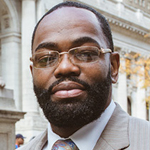
Ending mass incarceration, which inequitably impacts people of color, is the civil rights issue of our times. How can the Jewish community be a significant voice in the movement to change this system? CLICK HERE TO REGISTER
.
SEPTEMBER 26 at 1:00 P.M.
Mainline Protestants and the Israeli-Palestinian Conflict: Where Do We Go From Here?
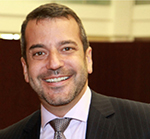
The Mainline Protestant churches have been a focus of Boycotts, Divestments, and Sanctions (BDS) activity for almost two decades. What are the lessons from the conventions in Presbyterian and Episcopal churches this past summer – and what are the next steps for the community relations field? CLICK HERE TO REGISTER
*
Preceding culled from news releases. Send yours to editor@sdjewishworld.com